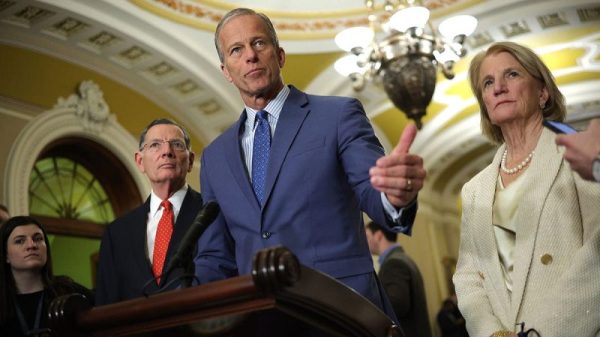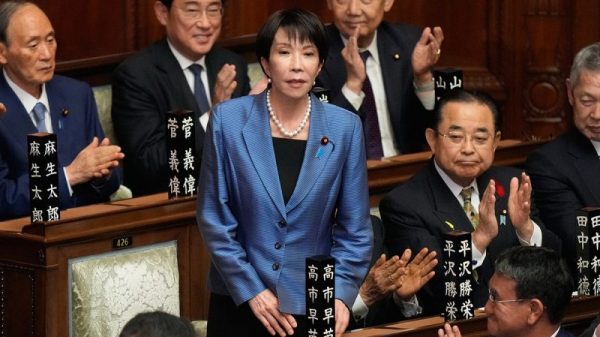Deficit Concerns: Japanese Shares Decline
Throughout a backdrop of unstable currency systems and economic indicators, Japan’s financial system sector experienced some major ups and downs on Wednesday. The revelation of the Ministry of Finance about the July trade deficit, which is a significant amount of 621.8 billion yen ($4.28 billion), was strongly contrasted with the surplus in June. This decline in trade from the previous month’s figures turned out to be the most notable development for economists.
The stronger yen followed the investor’s confidence, causing worry for corporate earnings amid a larger economic background. This currency movement added another layer of complexity to Japan’s already fluctuating financial landscape.
Japan’s Nikkei 225 share average will continue building on its revival from the worst sell-off in 37 years of the review period and should break the threshold of the highest point at the end of next year.
The yen, after a recent upward trend, found its place at around 145 to the dollar, which supported the market in a new positive environment, and the participants were prepared to listen to the speeches by Governor Ueda and Chairman Powell of the Bank of Japan (BOJ) and Federal Reserve (Fed) respectively.
Ueda is likely to deliver a clear message about whether the Bank intends to hike interest rates, irrespective of mixed signals, in his next session. Further disarray in Japan’s political economic trajectory is now shaping up after Fumio Kishida’s decision not to run for re-election added to the uncertainty of what policy announcements are forthcoming.
Japan’s Trade Deficit Widens as Imports Surge to 10.2 Trillion Yen
The Japanese economy showed mixed signals in July of the current year, with a widening trade deficit alongside varying corporate performances. The most recent monthly report unveiled a substantial leap in imports, which rose by 16.6% to 10.241 trillion yen, waiting on the heels of a 10.3% surge in exports of 9.619 trillion yen.
The Computer Institute of Japan stated that the attributable profit declined by 17% despite a 12.6% surge in net sales, thus pointing to a concerning tendency amidst the broader economic scenario. On the other hand, Taki Chemical posted a robust 65% increase in profit, attributed to the strong sales growth. Fujikura Composites, on the other hand, achieved a 22.9% profit surge, driven by steady, albeit modest, sales growth. These contrasting financial results highlight the diverse impacts of Japan’s current economic situation on different industries. The varying performances underscore a general downturn in trading activity and its ripple effect across the market.
Asian Currencies Steady: Yen/USD Pair Rising 0.2%
There is a mix of performances in the Asian currency markets, which remained stable on Wednesday. Most currencies stabilised after recent fluctuations. However, the Japanese yen, which had experienced a strong rally earlier in the week, lost some momentum. As a result, the JPY/USD pair declined by 0.2%.
Despite this, the yen’s earlier surge, which quickly pushed the pair upward, did not last long. Consequently, the pair stabilised around the 145-yen level. This is noteworthy, especially considering the yen reached 160 earlier this year. Furthermore, the volatility can be attributed to the unwinding of the yen carry trade, influenced by mixed signals from the Bank of Japan.
JPY/USD 5-Day Chart
At the moment, as the rest of the Asian countries became stable. The CNY/USD pair of the Chinese yuan sustained 0.1402 yuan in line with a slightly fortified midpoint fix by the People’s Bank of China, which also kept its benchmark loan prime rate straight. The South Korean won gained 0.5% against the dollar, while the Singapore dollar remained flat. These movements underline the continued impact of central bank policies and global interest rate expectations on Asian currency markets.
Stock Market Futures Steady: The S&P 500 fell 0.2%
On Wednesday morning, the stock futures remained stable, with traders anticipating comments from the Federal Reserve’s latest policy meeting that could provide hints about possible interest rate cuts. The futures for the Dow Jones Industrial Average moved up by 39 points or 0.1%, and the S&P 500 futures saw a slight gain of less than 0.1%. The Nasdaq-100 futures were nearly unchanged.
This stability in futures comes after Tuesday’s market performance, which saw a continuation of the recent downward trend. Tuesday marked the longest period of decline for the S&P 500 and the Nasdaq Composite since late 2023. In Tuesday’s trading, the S&P 500 went down by 0.2%, with the Nasdaq falling by 0.33% and the Dow Jones Industrial Average dropping by 0.15%.
The recent financial market turmoil was triggered by a weak US jobs report and the unanticipated interest rate hike by the Bank of Japan, which consequently caused a global sell-off on August 5th.
Fed’s Jackson Hole Conference: Inflation and Interest Rates
As the Federal Reserve meets in Jackson Hole, the focus on interest and inflation rates will be the factor that determines monetary policy. The Fed’s inflation target of 2% is still an elusive goal, with the July consumer price index at 2.9%. Nevertheless, the discussions may also show whether the Fed will be the first to cut the rates as early as September. The Fed’s cautious stance highlights the difficulty in reaching this balance between economic growth and inflation control.
The Central Bank needs to be precise in making policy changes. At the same time, it must confront the threat of rising unemployment. In addition to these challenges, the growing budget deficit is a concern for policymakers. This deficit could affect long-term economic stability and the effectiveness of monetary policy.
As the Fed follows this difficult path, the Jackson Hole conference’s outcomes may provide the necessary guidance. Alternatively, it could cause the Fed to pursue new policies that will affect the markets and consumers at large. The decisions made at this conference could have far-reaching implications. These would not only impact inflation and interest rates but also address the persistent deficit issues shaping the economic landscape.
Final Thoughts
The global economic landscape remains complex, with central bank decisions poised to have far-reaching implications. As markets react to trade deficits, currency fluctuations, and policy shifts, staying informed is crucial. For the latest financial insights and market updates, keep following FinanceBrokerage.com – your trusted source for navigating these uncertain economic times.
The post Deficit Concerns: Currency Fluctuations and Yen’s Volatility appeared first on FinanceBrokerage.






































